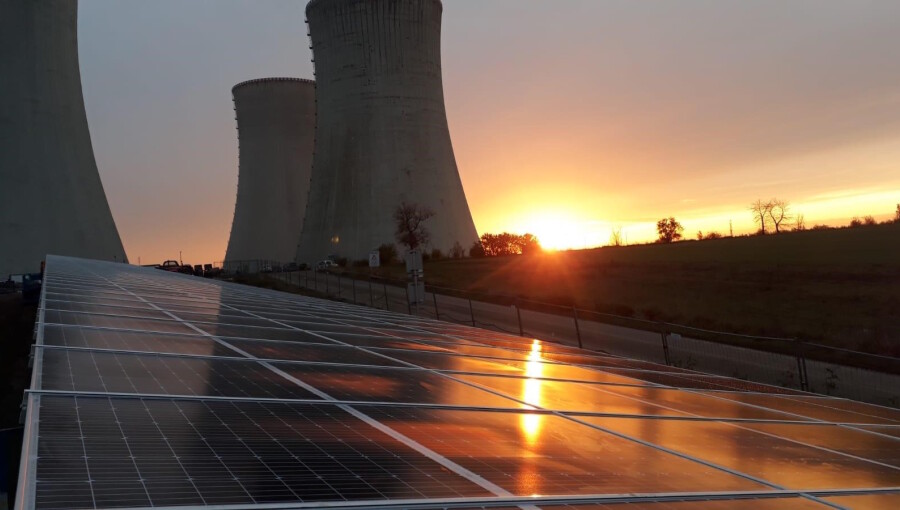CEZ income surge constrained by special taxes and levies

CEZ, the majority state-owned Czech power group, reported net income up 5% to CZK11.5bn on revenue up 40% to CZK76.3bn in 2Q23.
Adjusted net profit grew 68% year-on-year to CZK11.6 billion crowns ($525mn), twice the amount a Reuters poll forecast. Ebitda rose 91% to CZK29.8bn.
In the first half as a whole, net income fell 34% to CZK22.3bn on revenue of CZK169.7bn, up CZK39.2bn. H1 Ebitda rose 5% to CZK62.bn.
In 2022 CEZ’s record adjusted profits of CZK78.4bn were swollen by extraordinary trading revenues amid huge rises and volatility in commodity prices after Russia’s invasion of Ukraine. All of the adjusted net profit was paid out in a record dividend of CZK145 a share.
Shares in CEZ, by far the most important company on the Prague Stock Exchange, rose CZK10 or 1% to CZK956 on the news but closed on August 10 back at CZK957.
“The H1 results reflect the extreme fluctuations in market commodity prices and the extraordinary taxation introduced last year," said Finance Director Martin Novák. "The cost of levies on excess generation sales exceeded CZK11bn and the windfall tax amounted to CZK13bn. For the full year 2023, we expect levies from these extraordinary measures to reach CZK30bn-40bn.”
Analysts were upbeat about the results. “Overall, we consider the published results positive,” said Czech brokerage J&T. “Both the operating and the bottom line beat our expectations and very low indebtedness gives room for the payment of high dividends in years to come.”
Novak also highlighted the group’s low indebtedness: “CEZ Group’s net debt decreased by CZK 113bn in the first half of the year. Above and beyond Ebitda, the main contributor was the reduction of margin deposits on commodity exchanges due to partial stabilisation of the energy market,” he said.
CEZ net debt declined to CZK 42.7bn (CZK81.9bn at the end of 1Q) and the net debt-to-Ebitda ratio reached 0.3x (0.7x at the end of 1Q), said J&T.
The power group confirmed its forecast for the full year earnings to drop by at least half y/y because of the levy and windfall tax. FY Ebitda is forecast at CZK105 to CZK115bn and adjusted net income of CZK33bn to CZK37bn.
J&T pointed out that the results for H1 represent 57% of the full-year outlook (mid-range) for Ebitda and 64% of the net income outlook. “Despite the effect of seasonality, we expect the full-year results to be at the upper end of the current outlook or above it,” it said.
Novak said the company was again running its hedging strategy to pre-sell future output now that markets were calming, with 93% of this year output pre-sold, Reuters reported.
While the average realised price of electricity was at about €101/MWh last year, the company was selling 2023 output at €120 to €135 per MWh and has pre-sold 2024 output so far at an average of €128 per MWh and €127 in 2025.
CEZ highlighted that it will have paid CZK110bn to CZK120bn to the Czech state this year in dividends, income taxes and levies on excess generation sales. It is still unclear whether the windfall tax will be extended into 2024.
CEZ pointed out that, at 27% of generation, coal-fired power represented the lowest share ever. CEZ has been phasing out coal and investing in renewable energy. It also plans to build new nuclear reactors, though this is still waiting on a government decision on splitting up the company. The government has indicated it plans to split CEZ’s nuclear generation off into a separate state-owned company. CEZ now expects these plans to come in the autumn.
CEZ has indicated it would be interested in bidding for distributor GasNet, for which it has government support. In a conference call on August 10 CEZ said it considers GasNet a relatively safe investment since it is a regulated business. Additionally, certain synergies could follow from the operation of the distribution of electricity and gas. Novak told Reuters in an interview that a deal would make sense but depended on the price.


Follow us online